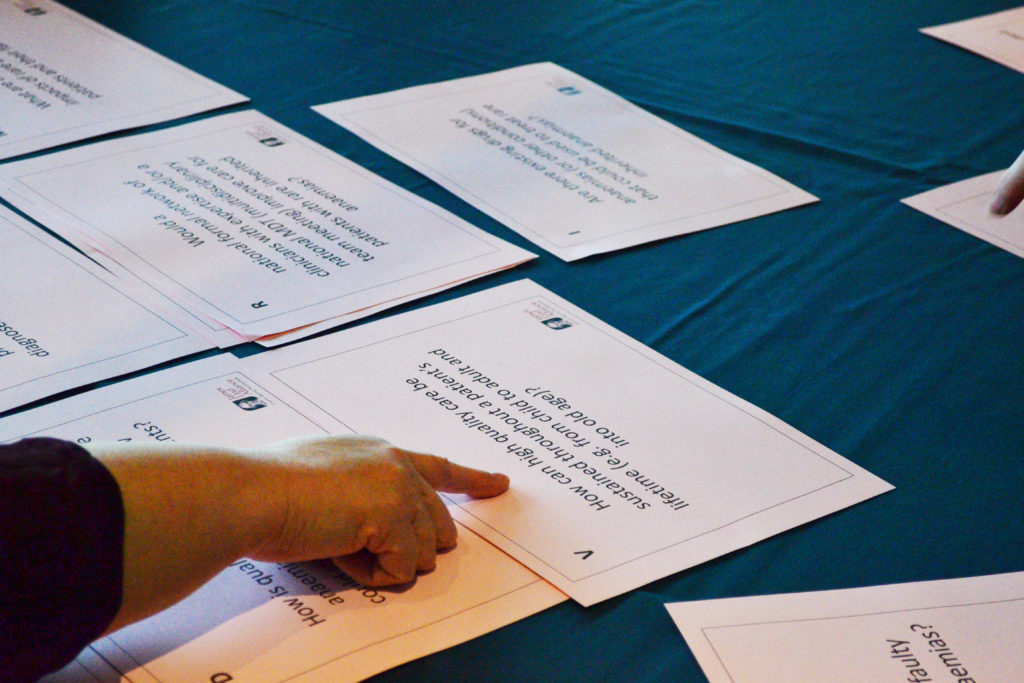On the occasion of Rare Diseases Day, marked every year on the last day of February, we are sharing this article about how patients, carers, clinicians and researchers are collaborating to decide key questions to shape future research into rare forms of anaemia.

Patients with anaemia lack red blood cells, or haemoglobin, which means that these cells cannot successfully carry oxygen from the lungs to other cells in the body. While some forms of anaemia are relatively common and well-understood, it can take years for patients with rare inherited anaemias to receive a precise diagnosis, if they get one at all. These conditions also have few treatments, because of limited research funding.
A unique partnership
Since 2016, a group of patients from all over the UK with a range of rare anaemias, along with their carers have come together in person – or virtually – to work with researchers and clinicians to identify what should be the research priorities for those investigating these rare anaemias, so that their research makes a real difference to patients’ lives.
The research agenda has traditionally been set by scientists, clinicians, funding bodies and pharmaceutical companies, but this process excludes patients, who are the group most directly affected by the disease.
Patients also have personal insight into the condition, and can help refine the focus of research, for example by highlighting symptoms that particularly limit their everyday lives.
To ensure that the various players were consulted, a steering group was created that included researchers of the MRC Molecular Haematology Unit (MRC MHU) at the MRC Weatherall Institute of Molecular Medicine, as well as clinicians, patients and patient support groups representatives.
The team used the well-established structured format of the James Lind Alliance Priority Setting Partnership, previously used to produce 67 patient-driven research priorities in other conditions, to ensure that patients and carers had an equal voice in the discussion.
The aim of the project was to stimulate research on rare inherited anaemias by finding out what all partners believed to be the most important areas for future research, including in the areas of diagnosis, treatment and management of these conditions.
Transformational process

The project was led by Dr Noemi Roy, a postdoctoral researcher at the MRC MHU and Honorary Senior Clinical Lecturer supported by the NIHR Oxford BRC.
It included surveys, workshops and discussions. Patients, carers and healthcare professionals were on an equal footing in the discussions, and their diverse skills and points of view were complementary, including medical knowledge, patient perspectives and an understanding of the research landscape and NHS organisational issues.
“The process was transformational,” Dr Roy said. “As we worked together for two years, we got to know each other well, and we learned to adapt the language we use, the assumptions we make, and the different outcomes each of us were considering for the future.”
The process culminated in a final workshop with 34 participants, where consensus on key issues emerged and yielded a final list of ten research questions, covering the need for new treatment options, better quality of life and the need for information and samples to be shared. The final report was published last June and can be accessed here.
A future for inherited rare anaemias
The participants now hope that the areas identified by their diverse group will inform future research, helping both the funding charities that award research grants, and the researchers, in their choice of research question.
The partnership also made clear how important open, equal dialogue between all stakeholders was.
One patient said: “I can help future generations and raise the profile of rare anaemias. This work makes me feel like I have a part to play and that even though you’ve got a rare condition, you can still make a difference.”